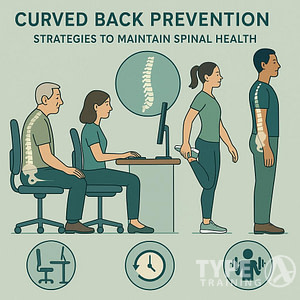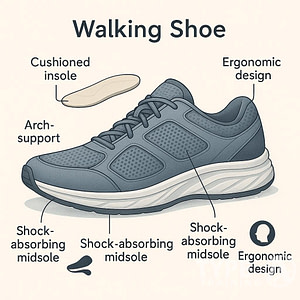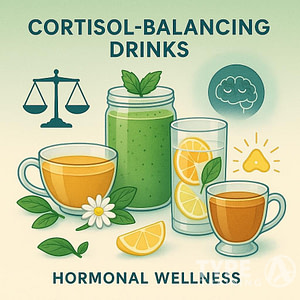If you’re looking for an alternative or complementary approach to traditional psychiatric treatments, you may be interested in exploring the benefits of yoga and meditation. These practices have been used for thousands of years to promote physical, mental, and emotional well-being, and there is growing evidence to support their use in psychiatric care.
Clinical studies have shown that yoga and meditation can help reduce symptoms of anxiety, depression, post-traumatic stress disorder (PTSD), and other mental health conditions. In addition to improving mood and reducing stress, these practices have been shown to improve cognitive function, enhance self-awareness, and promote a sense of calm and relaxation.
According to Chris Streeter, MD, a psychiatrist and yoga researcher at Boston University School of Medicine, “Yoga is a mind-body practice that can help reduce stress, anxiety, and depression, while improving mood, cognitive function, and overall well-being. It’s a safe and effective way to complement traditional psychiatric treatments, and can be tailored to meet the needs of individual patients.”
Yoga and Meditation in Psychiatry
Popular posts:
Yoga and meditation have been used for thousands of years in the East as a healing modality. Western practitioners are now starting to recognize the potential of yoga-based treatments in psychiatry and mental health. Hatha Yoga is the most popular form of yoga in the United States and frequently used in research studies. Hatha yoga involves physical postures and breathing exercises that are practiced so that the mind can be still for meditation and concentration.
Meditation-based yoga involves dissociating oneself from disturbing thoughts and focusing on breathing. It has been found to be effective in reducing symptoms of anxiety, depression, and stress. A comprehensive review of two most commonly used complementary therapies in psychiatric disorders, yoga and mindfulness, found that they enable patients to have a complete understanding of both these therapies’ benefits.
Notably, the prominent Indian Psychiatrist Professor N.S. Vahia and colleagues published several papers on yoga for psychological conditions in 1972-3, including studies published in the Indian Journal of Psychiatry and elsewhere, in which he presented the rationale for the use of yoga as therapy as well as the results of clinical application.
According to a study published in PMC, “Yoga has been in use for thousands of years in the East as a healing modality. Western practitioners are now starting to recognize the potential of yoga-based treatments.” This study suggests that yoga-based treatments have a lot of potential in treating mental health conditions.
In conclusion, yoga and meditation have a lot of potential in psychiatry and mental health. It is an ancient practice with modern applications that can be used in conjunction with western mental health treatment plans. The Indian Journal of Psychiatry has published several studies that show the effectiveness of yoga in treating mental disorders.
Clinical Evidence of Yoga and Meditation in Psychiatry
source: sciencedirect.com
Yoga and meditation have become increasingly popular in the field of psychiatry as a complementary and alternative medicine approach to treating various mental health conditions. There is a growing body of research studies that have investigated the effectiveness of yoga therapy and yoga-based treatments in treating psychiatric disorders.
A systematic review and meta-analysis of randomized controlled trials found that yoga-based interventions were effective in reducing symptoms of depression and anxiety in patients with psychiatric disorders. The study concluded that yoga may be a useful complementary treatment option for patients with psychiatric disorders.
Another clinical trial found that practicing yoga and meditation resulted in significant improvements in symptoms of post-traumatic stress disorder (PTSD) in veterans. The study concluded that yoga and meditation could be a useful adjunctive treatment for PTSD.
Research studies have also investigated the effects of yoga and meditation on biomarkers and neuroimaging in patients with psychiatric disorders. A review of biomarker evidence found that yoga had positive effects on biochemical, neuro-physiological, and neuro-imaging related biomarkers in psychiatric disorders.
A quote from a study published in the British Journal of Psychiatry states, “To address the criticism that yoga’s positive effects have no biological underpinnings, recent research has focused on assessing changes in possible biomarkers along with clinical changes in people with psychiatric disorders who practice yoga.”
In summary, the clinical evidence suggests that yoga and meditation can be effective complementary treatments for patients with psychiatric disorders. While more research is needed, these findings provide promising results for the use of yoga and meditation in psychiatry.
Yoga and Meditation for Specific Psychiatric Disorders
Yoga and meditation have been found to be effective in managing symptoms of various psychiatric disorders. Here are some of the most common psychiatric disorders and how yoga and meditation can help:
Anxiety and Generalized Anxiety Disorder
Yoga and meditation can help reduce symptoms of anxiety and generalized anxiety disorder by promoting relaxation and reducing stress. A study published in the Journal of Clinical Psychology found that yoga can significantly reduce symptoms of anxiety, including worry, tension, and nervousness.
Depression and Depressive Disorders
Yoga and meditation have been found to be helpful in reducing depressive symptoms. A study published in the Journal of Alternative and Complementary Medicine found that yoga can significantly reduce symptoms of depression, including sadness, hopelessness, and fatigue.
Post-Traumatic Stress Disorder (PTSD)
Yoga and meditation have been found to be helpful in managing symptoms of PTSD. A study published in the Journal of Traumatic Stress found that yoga can significantly reduce symptoms of PTSD, including intrusive thoughts, hyperarousal, and avoidance.
Obsessive-Compulsive Disorder (OCD)
Yoga and meditation can help reduce symptoms of OCD by promoting relaxation and reducing stress. A study published in the Journal of Anxiety Disorders found that yoga can significantly reduce symptoms of OCD, including compulsions, obsessions, and anxiety.
Eating Disorders
Yoga and meditation can help reduce symptoms of eating disorders by promoting relaxation and reducing stress. A study published in the Journal of Eating Disorders found that yoga can significantly reduce symptoms of eating disorders, including binge eating, purging, and body dissatisfaction.
In the words of Dr. Murali Doraiswamy, a professor of psychiatry and behavioral sciences at Duke University, “Yoga is a promising complementary treatment for psychiatric disorders and should be explored as an adjunct treatment, alongside traditional pharmacological and psychotherapeutic approaches.”
Overall, yoga and meditation can be valuable tools in managing symptoms of various psychiatric disorders.
Physiological and Neurobiological Mechanisms
Yoga and meditation have been shown to have significant effects on the physiological and neurobiological mechanisms of the body. These practices have been found to increase the activity of the parasympathetic nervous system, which is responsible for rest and relaxation, and decrease the activity of the sympathetic nervous system, which is responsible for the fight or flight response.
Research has shown that yoga and meditation can reduce the levels of cortisol, the stress hormone, in the body. High levels of cortisol have been linked to anxiety and depression. By reducing cortisol levels, yoga and meditation can help improve mood and affect.
Gamma-aminobutyric acid (GABA) is a neurotransmitter that helps regulate mood and anxiety. Studies have shown that yoga and meditation can increase the levels of GABA in the brain, leading to reduced anxiety and improved mood.
The hippocampus is a brain region that is important for memory and emotional regulation. Studies have found that regular yoga and meditation practice can increase the size of the hippocampus, leading to improved memory and emotional regulation.
“A growing body of research has shown that yoga and meditation can have a significant impact on the physiological and neurobiological mechanisms of the body. These practices can help reduce stress, improve mood, and increase the activity of the parasympathetic nervous system.” – Yoga and Psychiatric Disorders: A Review of Biomarker Evidence
Overall, the physiological and neurobiological mechanisms affected by yoga and meditation can have a significant impact on mental health. By reducing stress, improving mood, and regulating emotions, these practices can be a useful tool in the treatment of psychiatric disorders.
Yoga and Meditation as an Add-on Treatment
If you’re struggling with a mental health condition, you may be looking for ways to supplement your current treatment plan. One option to consider is adding yoga and meditation to your routine. The research has shown that these practices have a positive impact on mental health, especially when used in conjunction with other treatments.
Yoga and meditation are often used as an add-on treatment to traditional therapies like antidepressants. According to a study published in the Journal of Clinical Psychiatry, “yoga may be a useful adjunctive treatment for depression and anxiety disorders.” This means that while yoga and meditation alone may not be sufficient to treat these conditions, they can be used in conjunction with other treatments for a more comprehensive approach.
In fact, many mental health professionals now recommend yoga and meditation as an add-on treatment for a variety of mental health conditions. These practices can help reduce stress and anxiety, improve mood, and increase feelings of well-being. They can also help individuals cope with symptoms of depression and anxiety, such as negative thoughts and feelings of hopelessness.
Adding yoga and meditation to your treatment plan can be a simple and effective way to supplement your current therapies. You can start by finding a yoga or meditation class in your area, or by using online resources to guide your practice. It’s important to talk to your mental health provider before starting any new treatment, including yoga and meditation.
As Dr. Maren Nyer, a clinical psychologist at Massachusetts General Hospital, explains, “yoga can be a great addition to traditional mental health treatment, but it’s important to work with a mental health professional to determine how best to incorporate it into your care.”
In summary, yoga and meditation can be an effective add-on treatment for mental health conditions when used in conjunction with other therapies. These practices can help reduce stress and anxiety, improve mood, and increase feelings of well-being. However, it’s important to work with a mental health professional to determine how best to incorporate yoga and meditation into your care plan.
Applying Yoga and Meditation in Different Patient Populations
Yoga and meditation have been found to be effective in treating various mental health conditions. These practices can be applied to different patient populations, including children and adolescents, adults, and the elderly.
Children and Adolescents
Yoga and meditation can be particularly helpful for children and adolescents who suffer from anxiety, depression, and attention deficit hyperactivity disorder (ADHD). Research has shown that yoga and meditation can improve mood, reduce stress and anxiety, and enhance cognitive function in children and adolescents.
According to a study published in the Journal of Child and Adolescent Psychiatric Nursing, “yoga and meditation can be effective in reducing symptoms of anxiety and depression, improving attention and behavior, and increasing self-esteem and resilience in children and adolescents.”
Adults
Yoga and meditation can also be beneficial for adults who suffer from mental health conditions such as depression, anxiety, and post-traumatic stress disorder (PTSD). These practices have been found to reduce symptoms of these conditions and improve overall well-being.
Research has shown that “yoga and meditation can be used as an adjunctive treatment for depression, anxiety, and PTSD, and can improve quality of life and reduce stress and anxiety in adults” (Source: NCBI).
The Elderly
Yoga and meditation can also be helpful for the elderly population. These practices can improve cognitive function, reduce stress, and enhance overall well-being in older adults.
According to a study published in the International Journal of Geriatric Psychiatry, “yoga and meditation can improve cognitive function, reduce stress and anxiety, and enhance overall well-being in older adults.”
Patients with Aging and Neurodegenerative Disorders
Yoga and meditation have also been found to be helpful for patients with aging and neurodegenerative disorders such as Alzheimer’s disease and Parkinson’s disease. These practices can improve cognitive function and reduce symptoms of these conditions.
According to a study published in the Journal of Alzheimer’s Disease, “yoga and meditation can improve cognitive function, reduce symptoms of depression, and improve quality of life in patients with Alzheimer’s disease.”
In summary, yoga and meditation can be applied to different patient populations and can be effective in improving mental health and overall well-being. As stated by Dr. Sat Bir Singh Khalsa, “yoga and meditation practices can be used as a complementary treatment for mental health disorders and can help patients achieve a sense of balance and calm” (Source: PubMed).
Safety, Indications, and Contraindications of Yoga and Meditation
source: thegoodbody.com/yoga-facts
Yoga and meditation are generally considered safe practices, but it is essential to understand the indications and contraindications before starting.
Safety
Yoga and meditation are low-impact activities that can be practiced by most people without any adverse effects. However, it is always recommended to consult with a healthcare professional before starting any new exercise or meditation program, especially if you have any underlying medical conditions.
Indications
Yoga and meditation have been shown to be beneficial for various mental health conditions, including depression, anxiety, and stress. Research has suggested that these practices can help improve mood, reduce symptoms of anxiety and depression, and enhance overall well-being.
According to a study published in the Journal of Psychiatric Practice, “Yoga and meditation practices have been shown to be effective in reducing symptoms of anxiety and depression, improving mood, and enhancing overall well-being in patients with psychiatric disorders.”
Contraindications
While yoga and meditation are generally safe, there are some contraindications to consider. If you have any of the following conditions, it is best to avoid or modify certain poses and practices:
- Uncontrolled high
blood pressure - Severe osteoporosis
- Glaucoma
- Pregnancy
- Recent surgery or injury
- Severe arthritis
It is also important to listen to your body and avoid any poses or practices that cause pain or discomfort. If you are unsure about a particular pose or practice, consult with a qualified yoga or meditation instructor.
As with any exercise or meditation program, it is crucial to start slowly and gradually increase the intensity and duration of your practice. Remember to stay hydrated, wear comfortable clothing, and practice in a safe and quiet environment.
In summary, yoga and meditation are safe and effective practices for improving mental health and overall well-being. However, it is essential to understand the indications and contraindications before starting and consult with a qualified healthcare professional if you have any underlying medical conditions.
“Yoga and meditation practices are generally safe and have been shown to be effective in reducing symptoms of anxiety and depression, improving mood, and enhancing overall well-being in patients with psychiatric disorders.” – Journal of Psychiatric Practice.
Yoga and Meditation as a Cost-Effective Healthcare Approach
If you are looking for a cost-effective way to improve your mental health, yoga and meditation may be the solution you need. A study published in the Harvard Health Blog found that people who participated in a relaxation program that included yoga and meditation used 43% fewer medical services than they did the previous year, saving on average $2,360 per person in emergency room visits alone. This means that yoga and meditation programs could translate into health care savings of anywhere from $640 to as much as $25,500 per patient each year.
Healthcare providers are also recognizing the benefits of yoga and meditation. A randomized controlled trial of mindfulness-based yoga practice among nurses and healthcare professionals found that the intervention group demonstrated better sleep quality and reduced work stress. Yoga can also improve back pain and quality of life, making it a valuable tool for rehabilitation.
One of the reasons yoga and meditation are cost-effective is that they can be done at home with minimal equipment. All you need is a yoga mat and some comfortable clothing. There are also many free resources available online, including guided meditation videos and yoga classes.
Yoga and meditation are not only cost-effective but also have few side effects compared to medication. According to a report by the National Center for Complementary and Integrative Health, yoga is generally considered safe for healthy people when performed properly. However, it is important to talk to your healthcare provider before starting any new exercise program, especially if you have a medical condition.
In conclusion, yoga and meditation are a cost-effective healthcare approach that can benefit both your mental and physical health. As Dr. Gloria Yeh, an associate professor of medicine at Harvard Medical School, said, “Yoga and meditation are practices that can help individuals develop greater self-awareness, reduce stress, and improve mental and physical health.” So, why not give it a try?
Related Post
Frequently Asked Questions
What are the benefits of integrating yoga and meditation into psychiatric treatment?
Yoga and meditation have been shown to have numerous mental health benefits, including reducing symptoms of anxiety and depression, improving mood, reducing stress, and increasing feelings of well-being and relaxation. Integrating these practices into psychiatric treatment can provide patients with additional tools to manage their symptoms and improve their overall mental health.
How can yoga and meditation be used as complementary therapies for mental health?
Yoga and meditation can be used as complementary therapies for mental health by helping patients develop mindfulness, self-awareness, and relaxation skills. These practices can also improve the effectiveness of other psychiatric treatments, such as medication and psychotherapy.
What research has been done on the effectiveness of yoga and meditation in treating psychiatric disorders?
There is a growing body of research on the effectiveness of yoga and meditation in treating psychiatric disorders. Studies have shown that these practices can be effective in reducing symptoms of anxiety, depression, post-traumatic stress disorder (PTSD), and other psychiatric conditions. However, more research is needed to fully understand the benefits and limitations of these practices.
Can practicing yoga and meditation improve symptoms of anxiety and depression?
Yes, practicing yoga and meditation has been shown to improve symptoms of anxiety and depression. These practices can help patients develop coping skills to manage their symptoms, reduce stress, and improve overall mental health.
What are some practical ways to incorporate yoga and meditation into psychiatric treatment plans?
There are a variety of ways to incorporate yoga and meditation into psychiatric treatment plans. Some options include offering yoga or meditation classes as part of treatment, encouraging patients to practice these techniques on their own, and incorporating mindfulness-based techniques into psychotherapy sessions.
How can healthcare providers receive training in using yoga and meditation in psychiatric care?
Healthcare providers can receive training in using yoga and meditation in psychiatric care through a variety of sources, including professional organizations, continuing education programs, and specialized training programs. It is important for providers to receive proper training and education to ensure safe and effective use of these practices in psychiatric care.
“Mindfulness meditation has been shown to be effective in reducing symptoms of anxiety and depression, and can be used as a complementary therapy in psychiatric treatment.” – Psychiatric News














